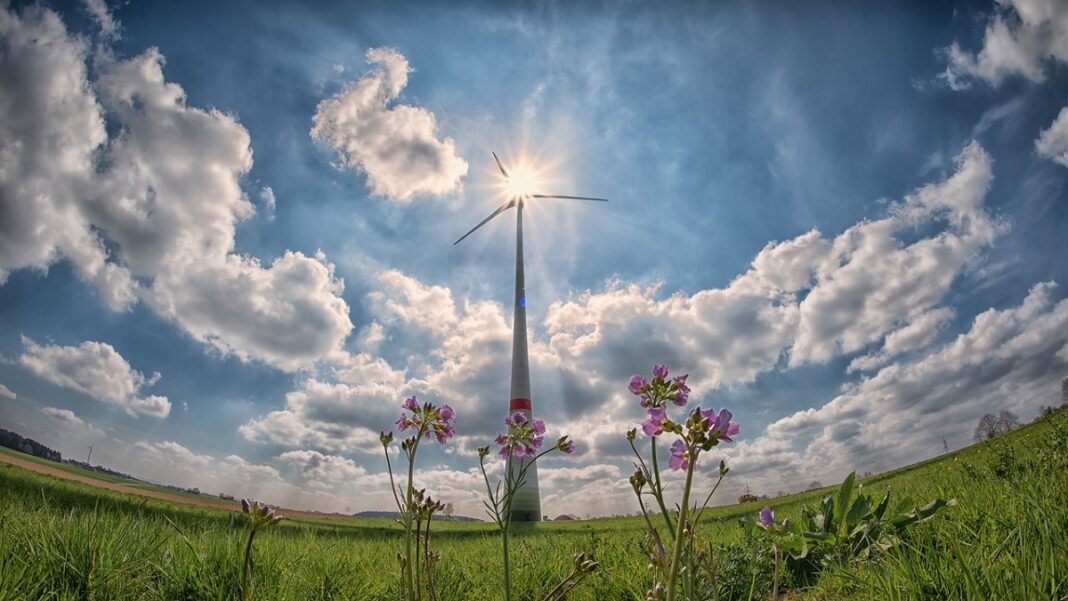By Saurabh Kumar Sustainability for MSMEs: The global search for sustainable solutions that power economic development while addressing the climate crisis has been led by passionate entrepreneurs and scholars who strive to develop and implement innovative ideas. The transition from traditional sources to cleaner energies has never been more urgent. According to the International Energy Agency (IEA), the share of renewable energy in global electricity generation increased from 16.
6 per cent in 2010 to 27. 7 per cent in 2020. While this represents progress, it falls short of the IEA’s Sustainable Development Scenario, which calls for a 50 per cent share of renewable energy in electricity generation by 2030.
In fact, The World Economic Forum’s Energy Transition Index, which tracks the progress of countries towards clean energy, found that no country is on track to achieve a fully sustainable energy system by 2030. The top-performing countries on the index still have a long way to go to achieve their targets. To accelerate our progress towards the sustainable development goals (SDGs), we must empower innovators with unique ideas to create and build businesses that catalyse energy transition pathways in India and worldwide.
The year 2030 also serves as the target year, as announced at CoP26, for the installation of 500 gigawatts of clean energy and the reduction of carbon emissions by 45 per cent in India. Also read: Only 13% of MSMEs aware of benefits of implementing sustainability measures: Report While there are nurturing opportunities available to startups, there are critical gaps – technical, financial and regulatory – that need to be addressed to achieve long-term replicable solutions at scale. Revamping the climate action incubation ecosystem We need to ensure the existing ecosystem is conducive to growth.
Incubation facilities must be rooted in financial contexts. By appropriately mapping demand-supply patterns and market economics we can identify and scale up energy transition and solutions. Supporting early-stage startups with initial capital and market linkages, both at local and international levels, enhances the scope of these solutions.
The generation of market insights and learning opportunities through incubator-academia partnerships strengthens strategy and knowledge sharing. Meanwhile, incubator-government partnerships are instrumental in integrating entrepreneurial solutions with governmental schemes and existing energy transition projects. Infusing patient capital into the investment ecosystem As energy transition is a gradual process, a profit-focused approach built on quick returns is not appropriate when seeking to support new businesses in this domain.
We need to adopt a patient capital approach accompanied by a thorough study of the local ecosystem and the setting of measurable long-term markers of progress. Equally important is the tailoring of financial instruments such as grants, to maximise returns and reduce the margin of risk; this will counter investor hesitance and attract venture capital. Supporting mentorship and networking opportunities Giving young entrepreneurs and startups access to industry leaders through the form of mentorships and networking opportunities is of the essence.
The insights they glean can be instrumental in shaping effective entrepreneurial strategies, for example: enhancing the visibility and scalability of solutions with comprehensive communications and marketing plans. Encouraging entrepreneurship to catalyse job creation A 2022 report by The Council on Energy, Environment and Water estimates that the renewable energy transition process could create 3. 4 million jobs by 2030.
The renewable energy startup space saw a significant volume of investment prior to the onset of the pandemic and there continues to be interest among incubators in cleantech innovations. These developments reveal the immense potential of youth entrepreneurship-led startups to become employers of choice. Tapping into the growth potential of startups should also be accompanied by efforts to appropriately skill and upskill talent from different parts of the nation.
Also read: ESG adoption can help MSMEs play big role in reducing carbon emissions: Experts Exploring policy incentives and participation across multiple levels Initiatives to increase awareness about existing policy provisions and agencies for engagement give entrepreneurs timely awareness of where and how they can share their expertise with policymakers. Training entrepreneurs to participate in advocacy initiatives, either by themselves or in partnership with think tanks, enables access to influential stakeholders in the policy space. It is also critical to prioritise initiatives aimed at enhancing the ease of doing business.
The allocation of provisions for microfinancing, as well as tax cuts for MSMEs, can be beneficial in the long run. Easing structural roadblocks and implementing incentives aimed at boosting the manufacture of in-house solutions will also complement sectoral growth. Initiatives such as Startup India and Skill India provide a much-required push for startups by creating a capacity-building and growth-oriented ecosystem.
Moving the needle on India’s 2030 renewable energy transition targets means harnessing the power of innovative thinking, combined with visionary investments and participation in policy consultation and action. This will radically accelerate sectoral progress and transform India into a renewable energy powerhouse. Saurabh Kumar is Head- India at Global Energy Alliance for People and Planet (GEAPP).
Views expressed are the author’s own. Subscribe to Financial Express SME (FE Aspire) newsletter now: Your weekly dose of news, views, and updates from the world of micro, small, and medium enterprises.
From: financialexpress
URL: https://www.financialexpress.com/industry/sme/msme-green-empowering-businesses-that-catalyse-energy-transition-pathways-must-for-sustainable-development-goals/3103969/



